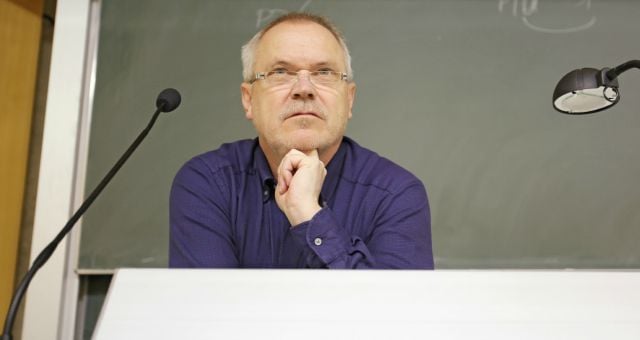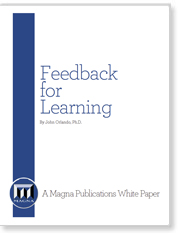 Those who write about teaching persona (the slice of our identities that constitutes the “public teaching self”) encourage us to start by reflecting on the messages we want to send to students. A dialogue with ourselves is a useful beginning, but for the last days of a semester another option might be more intriguing and revealing.
Those who write about teaching persona (the slice of our identities that constitutes the “public teaching self”) encourage us to start by reflecting on the messages we want to send to students. A dialogue with ourselves is a useful beginning, but for the last days of a semester another option might be more intriguing and revealing.
CURRENT ARTICLE • November 23
OTHER RECENT ARTICLES
What myths about constructing a teaching persona merit review? Teachers regularly exchange general advice about how to establish an identity in the classroom. Like most myths, these contain kernels of truth, but we believe their conclusions require a critical look. What are your beliefs about teaching persona, how it develops, and the role it plays in student learning?
Read More ›I looked down into the menacing waters as a rogue wave jolted the raft. Trembling, I stepped back, my chattering teeth and throbbing heart in perfect sync.
Read More › Who are you when you teach? When asked this question, most of us immediately respond by describing our teaching approaches. We might say “I’m more of a facilitator now.” Or we might respond with something like “I am a learner-centered teacher” or “I’m more of a lab teacher than lecturer.” But consider this question in another way: What “teaching presence” or persona underlies what you do as a teacher?
Who are you when you teach? When asked this question, most of us immediately respond by describing our teaching approaches. We might say “I’m more of a facilitator now.” Or we might respond with something like “I am a learner-centered teacher” or “I’m more of a lab teacher than lecturer.” But consider this question in another way: What “teaching presence” or persona underlies what you do as a teacher?
There is a discourse of deficiency around students—what they can’t do, how “ill prepared” they are—that gets aired at nearly every faculty meeting. We read it in op-eds online. We hear it in state legislatures and in copier rooms. It is the air we breathe, especially if we teach in community colleges. Certain populations of students are considered more deficient than others. These populations are partitioned by institution type and placement level, rather than by race or class. Community college students and students who have landed in developmental classes are considered the most deficient of all. We blame the high schools they came from and, sometimes implicitly, we blame them. They are lazy. They need handholding. They simply don’t have the skills. There is only so much we can do with them.
Read More › My educational philosophy is a combination of how I desire to teach and my motivation to be a lifelong learner. As a teacher at the Army Management Staff College, I am constantly learning during classroom and student interaction. Therefore, I am also a student. According to the Center for Educational Innovation at the University of Minnesota (2014):
My educational philosophy is a combination of how I desire to teach and my motivation to be a lifelong learner. As a teacher at the Army Management Staff College, I am constantly learning during classroom and student interaction. Therefore, I am also a student. According to the Center for Educational Innovation at the University of Minnesota (2014):
Take a moment right now to ask yourself who your best teachers were growing up. Now list the qualities that made them your best teachers.
Read More ›Earlier this year, a couple of contributions to The Teaching Professor (Haave 2014) and Faculty Focus (Weimer 2014) discussed the place of learning philosophies in our teaching. The online comments to Weimer’s blog post (2014) made me think more about how we as instructors need to be careful to bridge instructivist and constructivist teaching approaches for students not yet familiar with taking responsibility for their own learning (Venkatesh et al 2013).
Read More ›Mark Twain once remarked that “All generalizations are false, including this one.” It seems that we are in a time—an educational crossroads of sorts—when teaching is overgeneralized to the point where it can be difficult for professionals to have meaningful conversations.
Read More ›The most effective teachers vary their styles depending on the nature of the subject matter, the phase of the course, and other factors. By so doing, they encourage and inspire students to do their best at all times throughout the semester.
Read More ›







